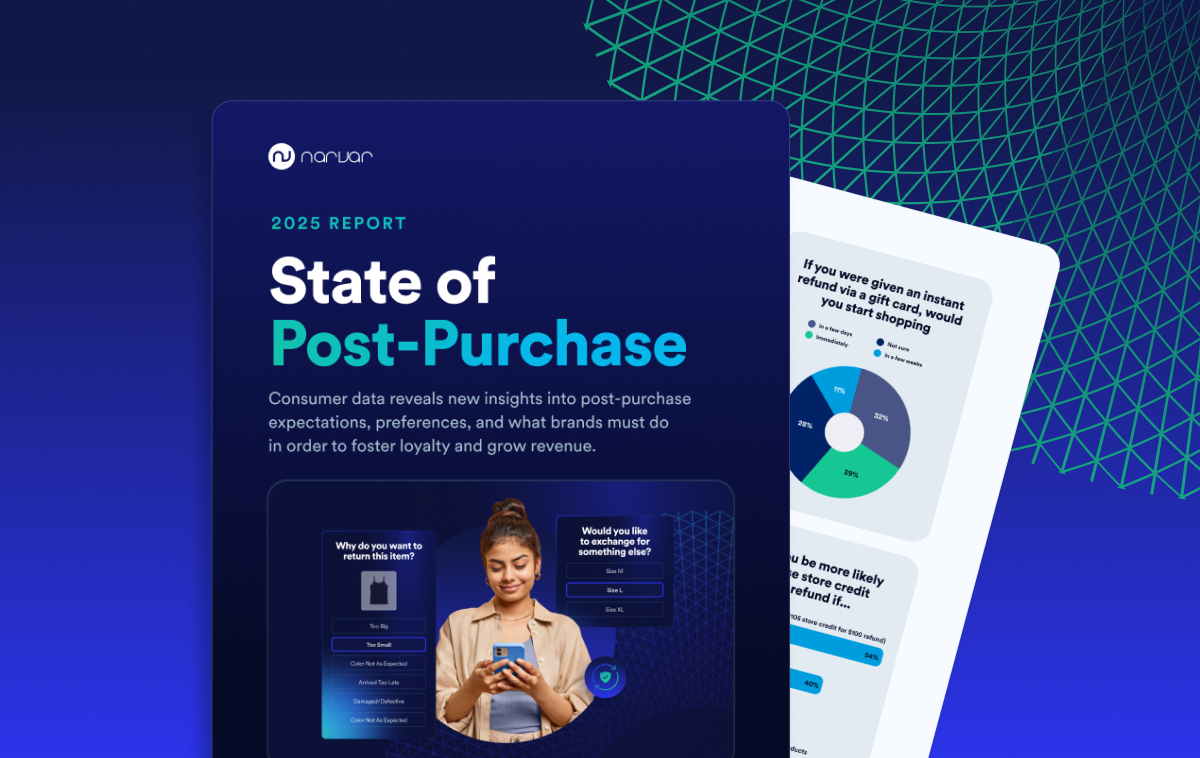
AI-powered delivery date estimates to boost conversion
Give shoppers peace of mind and protect and grow your bottom line
Personalized tracking experiences to build brand loyalty
Returns and exchanges management to mitigate fraud and reward best customers
Proactive communication to drive customer lifetime value
Delivery claim management to tackle fraud and build trust
3 Key Takeaways from The Lead Summit 2024

Last week, the Narvar team attended The Lead Summit in NYC, where we spent two days in Narvar's "dreamhouse," inspired by Barbie's dreamhouse. We invited merchants to choose between a personalized Mark & Graham bag or a Chubbies shirt, and in the afternoons, we handed out boozy popsicles to beat the NY heat.
While our activation was a hit, the insights we gained from the conference were exceptional.
Here are the three key takeaways we found particularly impactful:
Generative AI Transformations in Retail
Retailers are leveraging generative AI to revolutionize customer experiences and operational efficiencies. For instance, Victoria’s Secret is using AI to provide personalized product recommendations, while Nike is implementing AI for inventory management and personalized marketing, enhancing both operational efficiency and customer engagement.
However, while the potential of AI is vast, large retail companies are proceeding with caution due to concerns about data leaks, liabilities, and the complexities of implementing large AI models. These challenges highlight the need for robust security measures and thoughtful deployment strategies to mitigate risks associated with AI adoption. Additionally, AI-driven store analytics, personalized customer recommendations, adaptive advertising, and inventory management are transforming how retailers operate, driving significant cost savings and revenue growth.
Speakers like Karin Tracy, Head of Industry at Meta, and Stacey Schulman, VP at Intel, provided great insights on the challenges and opportunities of AI in retail.
Leveraging Consumer Insights for Organizational Transformation
Retailers are harnessing the power of AI and data analytics to gain deep insights into customer behavior and preferences. This approach allows for more targeted marketing, personalized customer interactions, and informed decision-making. By understanding customer needs more precisely, retailers can tailor their strategies to be more customer-centric, driving better business outcomes.
The adoption of AI tools for analyzing consumer data is enabling retailers to transform their organizational approaches, making them more agile and responsive to market changes. This shift towards data-driven decision-making is crucial for staying competitive in the fast-evolving retail landscape, as it empowers companies to make more informed and strategic decisions based on real-time insights.
Insights from speakers like Angie Rieger, Chief Transformation Officer at Land’s End, and Vivian Chang, Head of DTC Practice at Clorox, highlighted the transformative power of deep consumer insights.
Data-Driven CXs and Loyalty Programs
Retailers are rethinking customer loyalty programs by using data-driven insights to enhance customer lifetime value (CLTV). By analyzing customer data, they can design more personalized and engaging loyalty programs that cater to individual shopping behaviors and preferences. This personalization leads to increased customer satisfaction and long-term loyalty, fostering stronger connections between the brand and its customers.
Moreover, AI and data analytics are being used to create seamless and personalized customer journeys across multiple channels. Retailers are implementing AI-driven chatbots, personalized recommendations, and immersive ad formats to ensure a consistent and enjoyable shopping experience, whether online or in physical stores. This omnichannel strategy ensures that customers receive a unified and tailored experience, enhancing their overall satisfaction and loyalty.
Speakers like Quynh Dang, VP of Brand Marketing at Nanit, and Nandika Suri, VP of Global CRM at Under Armour, provided valuable perspectives on rethinking loyalty through data.
The Lead Summit 2024 highlighted the transformative potential of AI, deep consumer insights, and data-driven strategies in shaping the future of retail. These takeaways underscore the importance of innovation and personalization in achieving retail success.
Photos From the Event:


Related posts





















